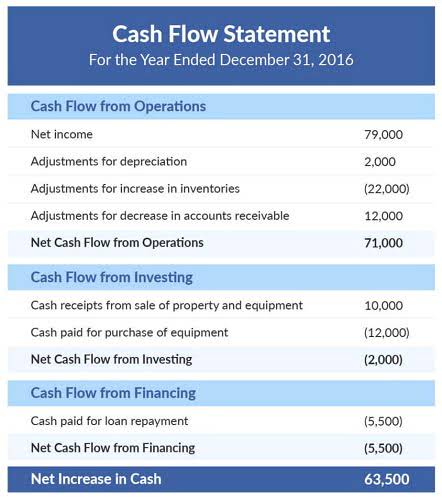
You can object to a decision and offer additional documentation to support your case, knowing the IRS needs to consider your objection and respond promptly. It does make mistakes, and if you recognize one, it’s your right to draw attention to it and insist on a fair tax assessment. After your Form 911 is received, you can expect to be contacted by a TAS employee. If https://metalurgicafiam.com/periodic-inventory-system-what-it-is-how-to-2/ you qualify for assistance, your case will be assigned to a single advocate who will work with you from start to finish.
How to File a Tax Extension with Form 4868
This right ensures that all interactions are respectful and conducted without discrimination. Taxpayers have the right to file a service complaint if they believe this standard has not been met by the CRA. The CRA must protect your personal and financial information from unauthorized access. All communications and records are kept confidential unless disclosure is authorized by law. If you believe that the confidentiality of your information has been compromised, contact the CRA immediately. That being said, taxpayers are also entitled to receive certain internal documents and CRA’s working papers via Access to Information and Privacy Directorate requests.
Penalties for Underpaying Estimated Business Taxes Explained
- The U.S. tax system gets more complex every year, with new regulations and guidelines being…
- Your appeal must not exceed 30 pages double-spaced or 15 pages single-spaced, not counting a table of contents and exhibits, such as copies of supporting documents.
- Navigating the complexities of tax regulations is a fundamental responsibility for businesses.
- If you have tried to resolve an issue with the IRS but have experienced a delay of more than 30 days, you may be eligible for help.
- If the objections are not resolved, the Department will issue a Notice of Final Determination (“NOFD”) stating the basis of the determination.
- You have the right to pay only the amount of tax legally due, including interest and any penalty, and to have the IRS apply all tax payments properly as outlined in the taxpayer bill of rights.
For many, this feels like receiving a summons from an all-powerful entity with unlimited resources, where you have no say and no power. Think of the Taxpayer Bill of Rights as your personal, legally-backed rulebook for dealing with the IRS. It’s a shield that ensures the government’s most powerful collection agency must treat you with fairness, professionalism, and respect. It transforms the relationship from one of a powerful sovereign versus a helpless subject into a structured process governed by clear rules.
The National Taxpayer Advocate’s Annual Report to Congress
Contact us immediately to attempt to resolve the matter with the appropriate business area. We may order your employer or any person to withhold and send us a portion of your earnings to pay your delinquent taxes. If your employer withholds the amount we order but does not send it to us, your employer may be liable for the ordered amount, plus interest. If we propose any changes to your tax return, we will explain the reasons. If you wish, you may audio record any in-person interview with an ALDOR employee, provided you notify us at least 24 hours prior to your interview. Likewise, we may audio record an in-person interview with you provided we notify you at least 24 hours prior to your taxpayer bill of rights interview, or if you have arranged to audio record your interview.
- This period can be extended to six years if you have understated your gross income by more than 25%.
- Unless voters approve its retention and expenditure by the government, the excess revenue cannot be kept.
- If you can’t afford one, assistance may be available to you for free.
- The Taxpayer Bill of Rights is divided into 10 fundamental categories.
- Two key elements of this mission are to treat taxpayers with dignity and respect and to provide a positive customer experience.
- Third parties must now include their name, address, and telephone number when submitting information about you.

We also exercise care not to raise an issue or to ask a court to adopt a position inconsistent with an established Franchise Tax Board position. It is our duty to correctly apply the laws enacted by the Legislature; to determine the reasonable meaning of various R&TC provisions, and to perform in a fair and impartial manner. This is done by reducing the amount of paperwork required of small businesses in complying with the CRA. The Office of the Taxpayer Rights Advocate is your voice at the NYS Tax Department.

- We notify you of the results by sending you a formal Notice of Action.
- To accomplish this mission, we develop knowledgeable and engaged employees, administer and enforce the law with fairness and integrity, and responsibly manage the resources allocated to us.
- It ensures that the struggles of ordinary people are consistently put before the lawmakers who oversee the IRS.
- You are entitled to question or provide evidence against an IRS decision, and the IRS must consider your arguments before taking final action.
- As a taxpayer, you are always entitled to fair, professional, prompt, and courteous service.
- To reinforce this section, we issued a policy statement to audit and collection employees.
We believe in treating our taxpayers with courtesy and considerateness. As such, administration should be reasonable, vigorous, and timely. It should never try to overreach, and should be reasonable within the bounds of law and sound administration. It should, however, be vigorous in requiring compliance with law and it should be relentless in its attack on unreal tax devices and fraud.
- During this conference you will have the opportunity to discuss your case with a designated hearing officer from the tax division whose actions you are contesting.
- The Act also mandated major organizational changes at the IRS, requiring the agency to develop a comprehensive customer service strategy and improve its training for employees on taxpayer rights.
- If the Department examines your return, the Department may ask you to provide information to verify items on your return.
- If you live in a presidentially declared disaster area or a California county or city which the Governor declares a state of emergency, then we may abate interest on a late-paid tax liability.
- This applies to fees incurred after the date of a Notice of Proposed Assessment, or a Denial of a Claim for Refund.
- If you are filing your taxes in the U.S., one of the most important items…
Procedures for imposing penalties R&TC Sections 19187
Some publications and tax form instructions are available in HTML format and can https://www.bookstime.com/articles/invoice-matching be translated. Visit our Forms and Publications search tool for a list of tax forms, instructions, and publications, and their available formats. To reinforce this section, we issued a policy statement to audit and collection employees.

On a state-level, such measures were only passed via referendum in Colorado, in 1992. Understanding the differences between these local, state, and federal laws and charters can be confusing and difficult. The most relevant is the charter implemented by the IRS itself, which aims to assure taxpayers that they have the right to a fair and just tax system, and the right to challenge the IRS’s position. The Taxpayer Bill of Rights (TBOR) is a set of 10 fundamental rights that the Internal Revenue Service (IRS) guarantees to all taxpayers when interacting with the agency. The TBOR was established to ensure fair treatment and transparency and to help taxpayers understand their entitlements and obligations. The IRS can be expected to consider your unique situation as a taxpayer, including situations that make payment or deadlines difficult.